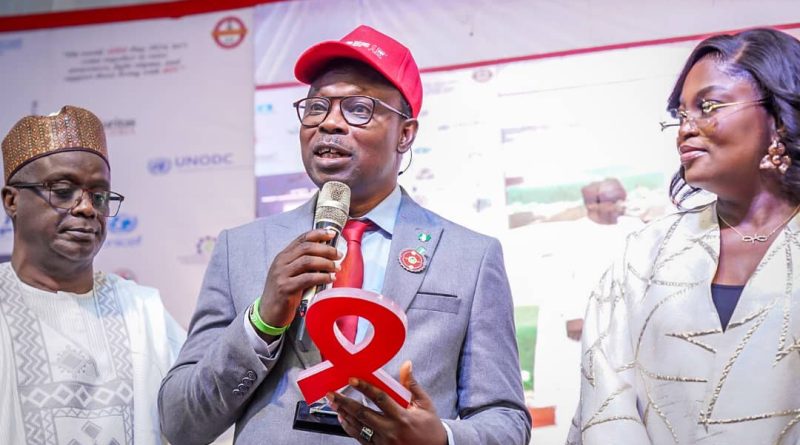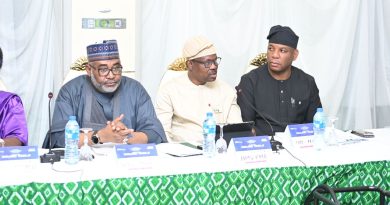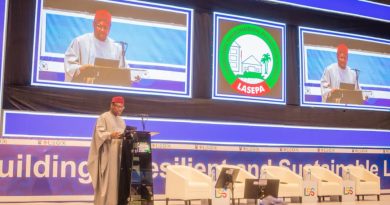Salako Says The World Can End HIV/AIDS If Everyone’s Right Is Protected
Nigeria joined other Countries in the commemoration of the World AIDS Day on Tuesday, December 3rd. The event which started 26 years ago as the first ever international day for global health affords government alongside UN agencies, NGOs and the civil society to raise awareness by campaigning around specific themes related to HIV/AIDS. Speaking at the event, Dr. Iziaq Adekinle Salako, the Minister of State for Health and Social Welfare said the world can end HIV/AIDS if everyone’s right is protected. This year theme, “Take the Rights Path – Sustain HIV Response, Stop HIV Among Children to end AIDS in Nigeria by 2030”, Salako said, reminds us of our collective responsibility to intensify our efforts to protect the most vulnerable, especially children against HIV, while ensuring that the right approach, rooted in human dignity, inclusion, and equity, guides our interventions.
The Minister expressed appreciation to stakeholders- Network of persons living with HIV and AIDS in Nigeria (NEPWHAN), donors, multilateral & bilateral agencies, implementing partners, civil society organizations, faith-based organizations, women and youth organizations, traditional leaders and all who have contributed to the fight against HIV&AIDS since the first 2 cases were reported in Nigeria in 1986, incidentally one of them a child.
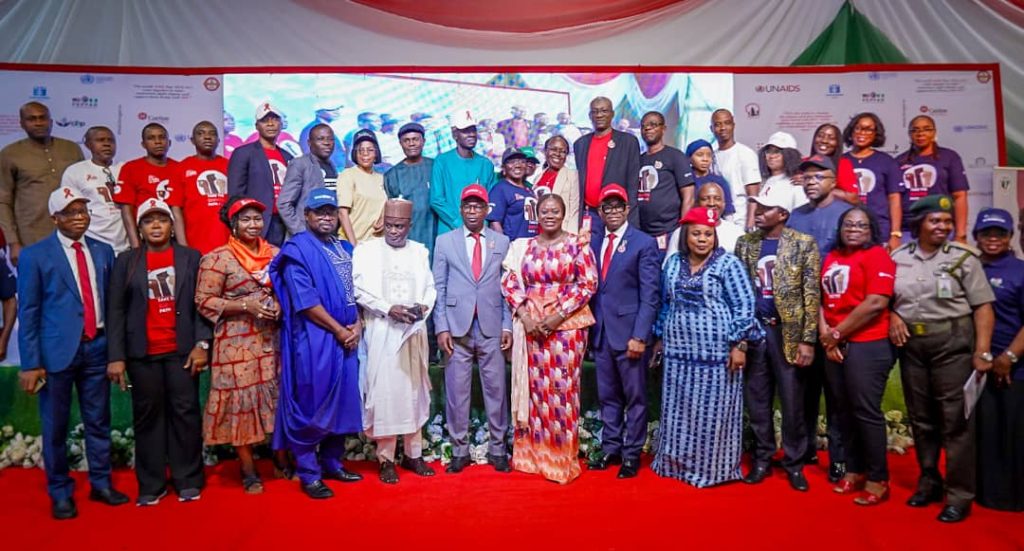
He said, “I want to take this opportunity to commend the National Agency for the Control on AIDS (NACA) for the significant strides made so far in her mandate to coordinate the multi-sectoral responses to HIV/AIDS. Through NACA’s coordination of the collaborative efforts of all stakeholders to HIV/AIDS, Nigeria has been able to expand access to testing and treatment, comprehensive prevention programmes, and reduce stigma and discrimination. I equally appreciate the great effort of National HIV/AIDS, Hepatitis and STIs Control Programme (NASCP) of the Public Health Department of Federal Ministry of Health and Social Welfare for diligently providing leadership for the health sector response to HIV/AIDS.
“With a current HIV prevalence of 1.4% in the general population and an estimated 2 million people living with HIV, it is critical for us to continue on the paths laid out by the various reforms and ensure that our response meets the needs of vulnerable groups. I am pleased to announce that we have taken a step forward in the fight against HIV/AIDS by ensuring HIV is fully integrated in the sector wide approach (SWAp) which will help ensure that all resources are aligned with our national health priorities and we scale up our HIV responses with full government ownership and accountability.
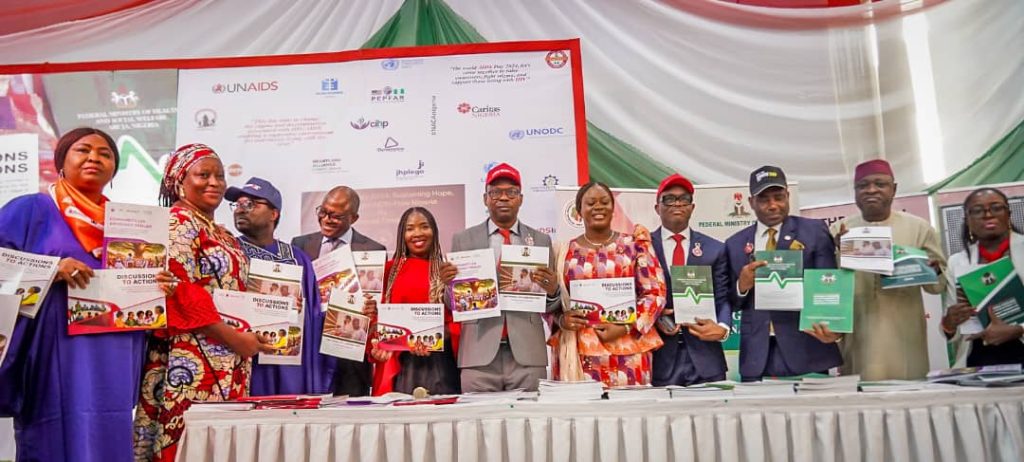
Over 1.9 million people living with HIV in Nigeria which includes approximately 150,000 children. He said there is an urgent need to address the root causes of HIV transmission and further scale up efforts to eliminate new infections among children. He noted that nearly 4 out of 10 HIV-positive pregnant women in Nigeria do not receive the necessary interventions to prevent mother-to-child transmission.
“The devastating impact of HIV on children is particularly alarming. A generation of children born to mothers living with HIV is at risk of infection, yet many of these infections are preventable. While progress has been made in reducing new infections, we cannot be complacent, we must act with a sense of urgency and a firm resolve to reach every mother, every child, and every individual at risk of HIV transmission. Our response to HIV must therefore be comprehensive, sustainable, and inclusive. This means ensuring continued access to antiretroviral therapy (ART) for those already living with HIV, expanding HIV testing and counselling, and improving the availability of prevention programs for those at highest risk of infection. The Federal Ministry of Health and Social Welfare, we will continue to work closely with state governments, development partners, and civil society organizations to scale up these services, particularly in underserved areas.
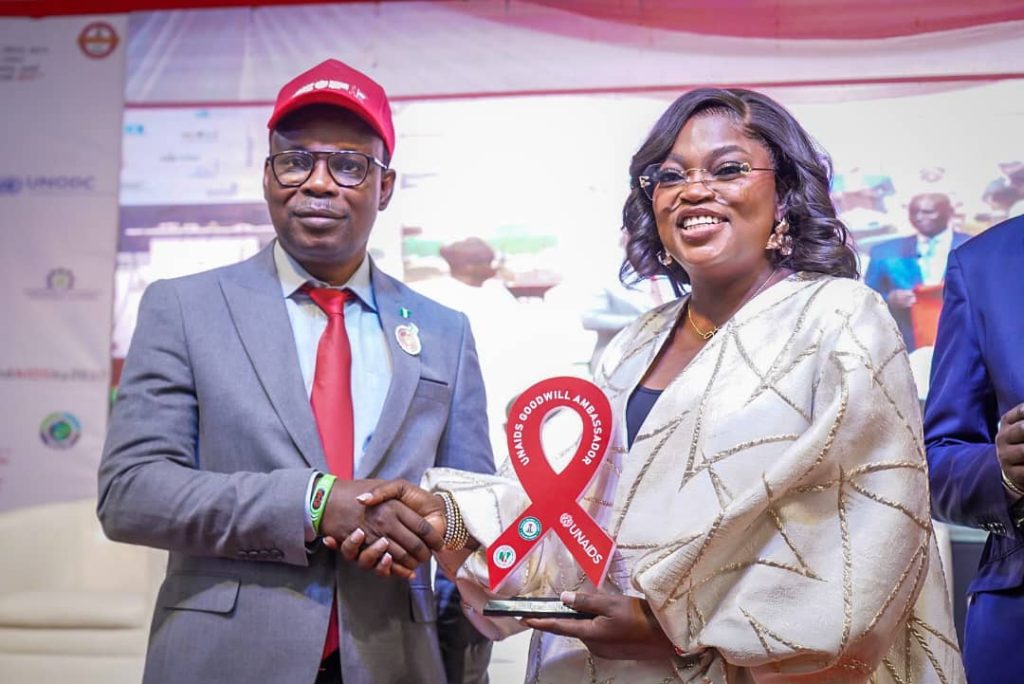
“Preventing mother-to-child transmission of HIV remains one of the cornerstones of our strategy. Nigeria is committed to ensuring that all pregnant women regardless of their location or socio-economic status have access to the necessary services that will allow them to give birth to HIV-negative children. This includes antenatal care, HIV testing, ART for pregnant women living with HIV, and the provision of post-natal care to both mothers and babies. We are also enhancing the integration of HIV care within broader maternal and child health programs to make it easier for families to access services.
“The Federal Government of Nigeria under the leadership of His Excellency, President Bola Ahmed Tinubu GCFR remains committed to achieving the goal of ending AIDS by 2030 and we are determined to sustain the response where no child is left behind. This commitment is anchored under the Health Sector Renewal Investment Initiative and the various reforms to ensure availability of reliable data, medicine security including HIV treatment inputs, sustainable domestic resources mobilization, HIV service integration, strengthening oversight, improving coordination and so on”, the Minister said.
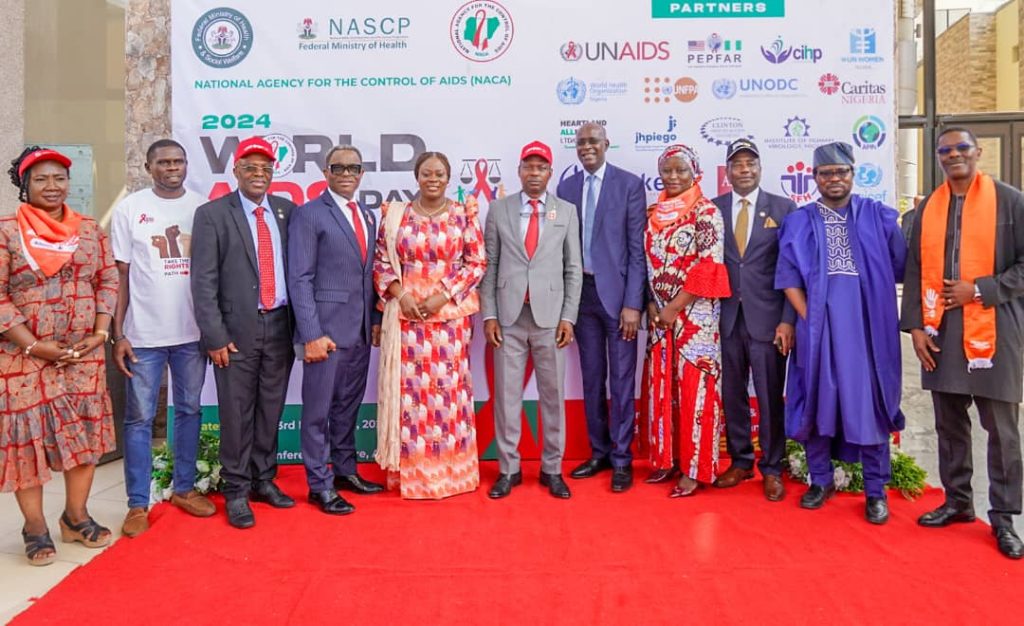
He called on the sub-national governments (state and local), the private sector, community and religious leaders, NGOs, CBOs and all stakeholders in the fight against HIV to “take the rights path” by scaling up interventions aimed at preventing HIV transmission among children. He stressed that the strategy must be holistic, addressing the social, cultural, and economic barriers that hinder access to healthcare services for women and children.

